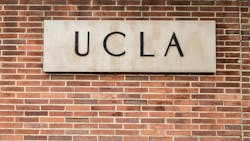UCLA reviews L.A.’s plan to invest billions in wastewater recycling infrastructure
A new UCLA report confirms that the wastewater recycling plans for the nation’s second-largest city would make Los Angeles more resilient and self-reliant during droughts or disasters that cut off outside water supplies.
The UCLA research team, led by the Luskin Center for Innovation (LCI), found that the Los Angeles city plan would significantly boost local water resilience, minimize the risk of aging infrastructure and uncertain water imports, and dramatically reduce drought and earthquake driven water shortages.
Los Angeles’ wastewater treatment plan, Pure Water Los Angeles, would create renewable local water source of more than 250,000 acre-feet of clean drinking water, enough for more than half a million households annually.
To support the city’s goal to recycle all wastewater by 2035, the Los Angeles Department of Water and Power committed to invest at least $6 billion in the infrastructure project, previously titles Operation Next (OpNEXT).
“Supporting wastewater recycling infrastructure at scale now would be a strategic investment to address immediate water supply challenges and offers long-term economic and water security benefits,” Researcher at UCLA LCI and Oxford University Nicolas Chow said in a press release.
What the Los Angeles waastewater treatment plan would do
The researchers found that the plan would:
- Significantly bolster local water supply resilience
- Improve resilience to uncertain water imports
- Significantly reduce earthquake-driven water shortages
- Offer substantial regional economic benefits
“Because climate uncertainty will be the largest driver of the city’s water shortage, the city must adapt by developing more local, reliable supplies,” Research Director of UCLA LCI Gregory Pierce said in a press release. “Operation Next is by far the biggest opportunity the city has to do so.”
